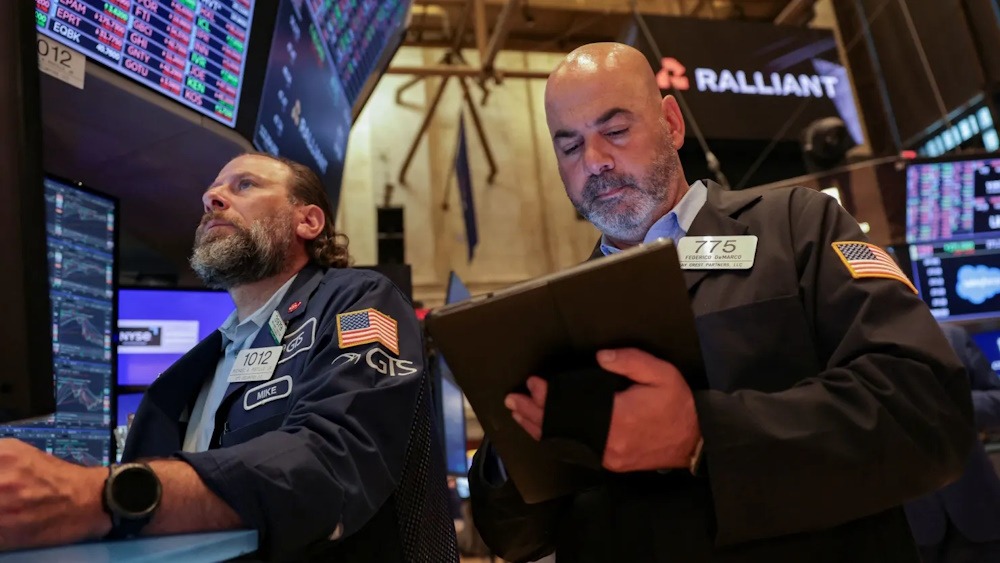
The S&P 500 experienced a slight decline of 0.11%, concluding at 6,198.01, whereas the Nasdaq Composite fell by 0.82%, finishing at 20,202.89. The blue-chip Dow stood out, increasing by 400.17 points, or 0.91%, to close at 44,494.94.
Traders sold off technology behemoths like Nvidia and Microsoft, redirecting their capital towards health-care companies. Amgen and UnitedHealth experienced increases exceeding 4%, whereas Merck and Johnson & Johnson saw gains of over 3% and approximately 2%, respectively, contributing positively to the performance of the 30-stock Dow. It represents a shift from the market’s technology-led rebound in the second quarter: The Technology Select Sector SPDR Fund experienced an increase of nearly 23% during that timeframe but declined by 0.9% at the beginning of the third quarter. “In the final two months of the quarter, there was a pronounced inclination towards risk-taking.” “It was about buying stocks that had these really strong secular growth drivers like AI and technology, it appears we have fully explored that trade” said Anthony Saglimbene, Ameriprise chief market strategist.
In other developments, electric vehicle manufacturer Tesla experienced a decline of 5% following a suggestion from Trump on Truth Social that the Department of Government Efficiency (DOGE) investigate the government subsidies allocated to CEO Elon Musk’s enterprises. Musk has expressed his disapproval of Trump’s megabill, labeling it as “utterly insane and destructive” during the weekend. This marks yet another instance of contention between Trump and Musk regarding the administration’s fiscal strategies, following a previous dispute that emerged earlier this year. The megabill was approved by the Senate on Tuesday with a narrow 51-50 vote. The package is now proceeding to the House, where it retains the capacity to reject modifications to the legislation.
Earlier in the day, Powell confirmed at a European Central Bank panel in Portugal that the Fed likely would have implemented further rate cuts by now were it not for tariffs. He indicated that any forthcoming action would be contingent upon the data and refrained from providing a direct response about whether July would be premature. “In effect, we went on hold when we saw the size of the tariffs and essentially all inflation forecasts for the United States went up materially as a consequence of the tariffs,” Powell stated.
Market participants are anticipating negotiations between the United States and its trading partners, as the 90-day extension on the most significant tariffs imposed by Trump is approaching its expiration next week. Zachary Hill, head of portfolio management at Horizon Investments, expresses skepticism regarding market expectations, noting that while they are subdued, volatility may still be forthcoming. “Investors have certainly ramped up their positioning in recent weeks, which I believe presents a potential vulnerability,” he stated.
Equities staged a notable recovery following significant downturns in April, as Trump’s extensive tariff measures drove the S&P 500 close to bear market levels. The major averages have experienced a notable rebound, with the broad market index concluding the second quarter with a 10.6% increase and the Nasdaq rising by nearly 18% during this timeframe.
